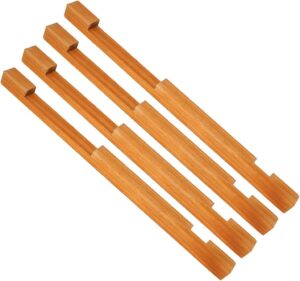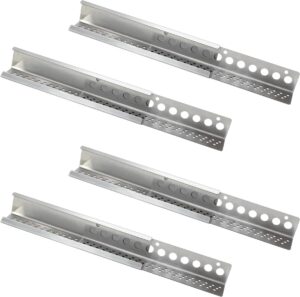Hive robbing is a fairly common behavior, especially in the summer and autumn. Failure to notice a robbing event and deal with it promptly may cause disaster to your beehive. In this article, I will teach you everything about hive robbing.
What is Hive Robbing?
Hive robbing is where bees rob honey from other hives. This usually happens when there is a nectar dearth.
Nectar dearth simply means there isn’t enough nectar producing flowers for the bees. Obviously, this happens in autumn or winter. But, it may also happen in summer if the weather conditions are not right.
Always keep an eye on potential robbing that may happen to your hive. When nectar is scarce, the wild bees would seize any opportunities to rob your hive.
Why Should You Stop Hive Robbing?
You should stop robbing for the obvious reason: to protect your hive’s precious food. Winter is coming, and your bees will not survive without sufficient food. Hence, you should stop robbing as soon as you notice that.
On top of that, your bees may die from the fight to protect their hive. This will reduce the workforce, and make your hive less productive.
Another reason to stop robbing is to prevent the spread of varroa mites. The robber bees may come from an infested colony. When they rob your hive, they bring the mites together. That can be a disaster for your colony.
How to Identify Hive Robbing?
So, how do you know whether your hive is being robbed? There are 3 signs that indicate your hive is being robbed:
Bees Fighting Each Other
The hive entrance defended by the guard bees. The guard bees inspect all the incoming bees to check whether they belong to the same colony.
When the guard bees nailed down the intruders, they would attack and sting them. They will also raise their pheromone alarm to call for help if they find intruders.
If you see bees fighting at the entrance or even the ground, there is a robbing happening.
Bees Leaving the Hive with Pollen
Bees leave the hive to find pollen, and bring the pollen back to the hive. No bees should leave their hive along with pollen. If you see bees leaving the hive with lots of pollen on their legs, they are probably the robber bees!
Bees Wandering around the Gaps on the Hive
Bees are smart creatures. They know where the entrance to their hive is. However, it seems like they might have hard times finding the entrance of a hive which they don’t belong to.
If you see bees attempting to squeeze into your hive through possible gaps, or if you have bees wandering around the side of your hive where you don’t normally see your bees doing, robbing has happened.
How to Stop an Active Hive Robbing?
Once you have found your hive is being robbed, you need to act immediately!
To stop hive robbing, use an entrance reducer, so that the guard bees can easily stop robbing bees. Alternatively, use an entrance screen or cover the hive with a big, wet blanket to deter the robbing bees. Some beekeepers reported that Vicks Vaporub can confuse the robbing bees, and help protect your hive.
Entrance Reducer
An entrance reducer is a small gadget that reduces the size of the hive entrance. By limiting the entrance size, it becomes harder for the robbing bees to sneak through the guards. It is also not possible for multiple robbing bees to infiltrate the hive simultaneously.
Entrance Screen
An entrance screen comes in the form of a framed mesh. It can be installed directly onto the entrance, so that the robbing bees cannot fly directly into the hive. Because they are not familiar with hives, the robbing bees usually can’t find their way into the hive.
Install the entrance screen early in the morning or at night, when all the bees are resting. On the next morning, you will see your bees trapped in the screen. They eventually find their way out, and learn how to go back to their hive. The robbing bees simply don’t have the luxury to do so.
Certain entrance screens have 2 entrances, making it even harder for robbing bees to enter your hive.
Wet Blanket
The concept of using a wet blanket is similar to the entrance screen. Simply cover your hive with a wet blanket, blocking the entrance from the sight of the robbing bees.
Robbing stops immediately with the use of wet blanket, as the robbing bees can’t find the entrance to your hive. However, your bees are unaffected, as they will somehow find their way into the hive.
The wet blanket can be removed one day or two after robbing has stopped.
Vicks Vaporub
I am sure that everyone is familiar with Vicks Vaporub. Vicks Vaporub contains a special substance that seems to confuse the robbing bees, and prevent them from entering your hive. Somehow, it doesn’t affect your bees.
You just need to apply Vicks around the hive entrance to deter the robbing bees.
Bear in mind though, this method is not as robust as the other methods mentioned earlier.
How to Prevent Hive Robbing?
As best as possible, you want to prevent robbing from happening in the first place. Here are the 6 best practices that you can follow to prevent robbing:
Avoid using the entrance feeder
Entrance feeders attract bees from other hives because they are conspicuous and easily accessible. Use a hive top feeder instead.
Keep all syrups concealed.
Do not leave any syrup in the open, especially in a nectar dearth. This will quickly attract bees!
Clean all sweet spillage immediately
If you accidentally spill syrup water, clean it up. Not only it attracts ants, it also invites other bees, and might trigger hive robbing.
Keep the super covered
When you are harvesting, make sure the super is covered at all times. Such an amount of exposed honey will definitely trigger a robbing frenzy.
Use an entrance reducer
An entrance reducer limits the entrance to the hive to 1 bee at a time. This will make it more difficult for the robbing bees to infiltrate your hive. Don’t use an entrance reducer all-year-round. Use this only at low nectar flow. Using the entrance reducer in the summer may cause a traffic jam at the entrance, and it can be counterproductive.
Use an entrance screen
An entrance screen blocks the main entrance to the hive. While the robbing bees can see the hive entrance, they are not able to easily find the entrance on the screen.
Will My Bees Rob Other Hives?
Yes, your bees may also rob other hives for honey. Certain bees, such as the Italian honey bees, have a higher tendency to rob other hives than other bees.
Robbing is bad even if your bees are the robbers. This is because they may bring home unwanted parasites and pathogens, and spread them in your hive.





